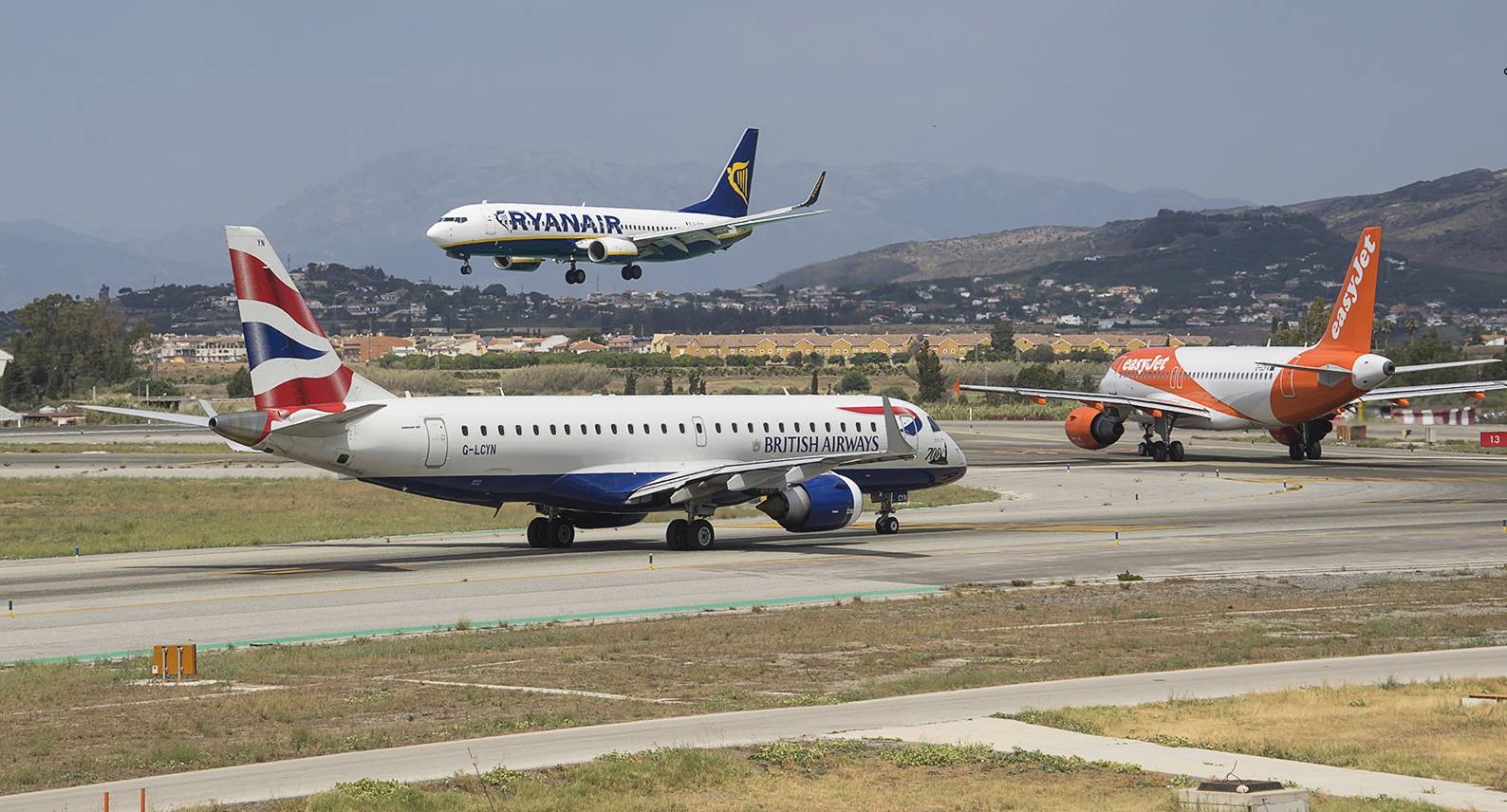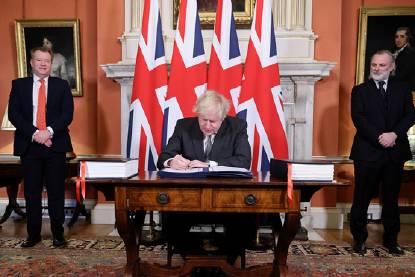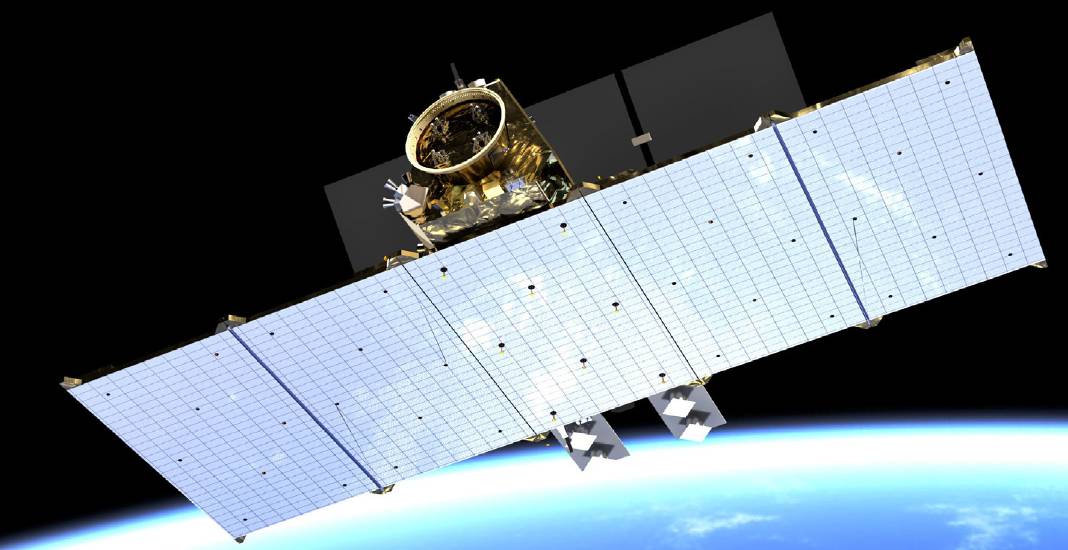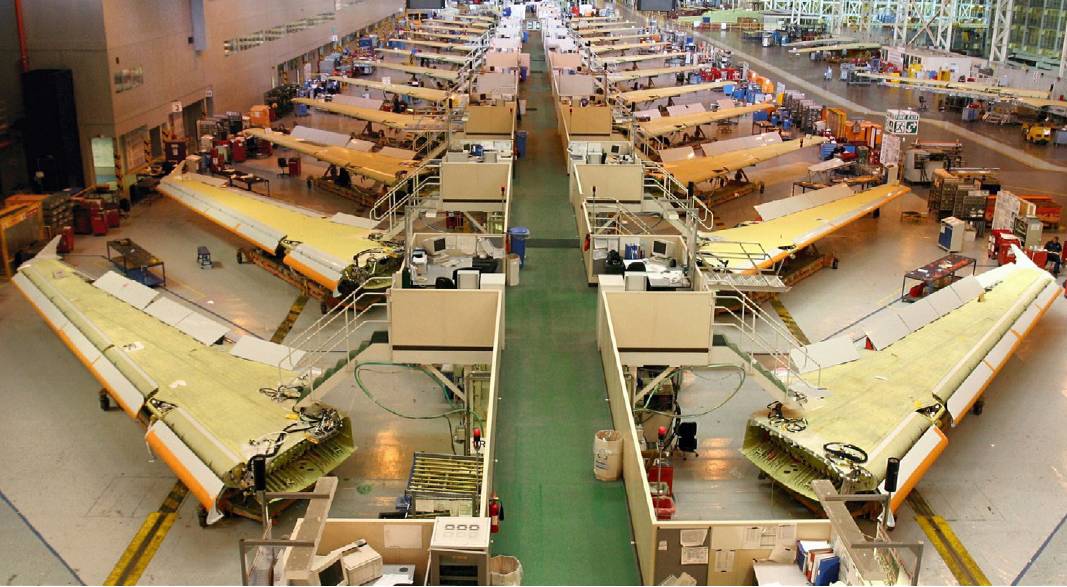AEROSPACE Brexit and UK aviation
Brexit at arrivals
Brexit is here – bringing a mixed outlook for UK aviation, aerospace and space. Professor KEITH HAYWARD FRAeS considers the implications of the Brexit deal, ending four years of upheaval and debate stemming from 2016’s historic referendum.
 Ryanair, easyJet and British Airways will need to come to terms with the EU ownership rules. Alfonso Eguino
Ryanair, easyJet and British Airways will need to come to terms with the EU ownership rules. Alfonso Eguino
The final agreement is a legally dense doorstop of a document and omissions may count for more than inclusions. Many of the details are subject to further negotiations and the final outcome is likely to be affected by wider political interests, including EU responses to HMG actions in respect of state subsidies and third-party trade agreements.
Aviation
Back to Chicago ‘44
This is a temporary or holding agreement pending future negotiations; the EU and HMG are understood to be shortly addressing a longer-term set of arrangements as a matter of urgency. As matters now stand, UK registered carriers can no longer participate in the fully liberalised EU aviation market. In effect, the Chicago Convention of 1944 and its ‘five freedoms’ will shape air transport between the UK and the EU pro tem: this allows for the basic four freedoms including unlimited point-to-point traffic between all UK and EU airports.
 Prime Minister Boris Johnson signs The EU–UK Trade and Cooperation Agreement. Crown copyright/UK GovtThe economically important ‘fifth freedom’ and the implicit ‘sixth freedom’ of onward flights from EU destinations to those outside the EU or the UK, and cabotage rights of unrestricted internal operations within the European Aviation Market are currently denied to passenger operations: ‘fifth freedom’ rights are, however, granted to scheduled and non-scheduled all-cargo flights. EU airlines have comparable operational rights in the UK but they have hardly the same commercial implications as the loss of full access to the European aviation area.
Prime Minister Boris Johnson signs The EU–UK Trade and Cooperation Agreement. Crown copyright/UK GovtThe economically important ‘fifth freedom’ and the implicit ‘sixth freedom’ of onward flights from EU destinations to those outside the EU or the UK, and cabotage rights of unrestricted internal operations within the European Aviation Market are currently denied to passenger operations: ‘fifth freedom’ rights are, however, granted to scheduled and non-scheduled all-cargo flights. EU airlines have comparable operational rights in the UK but they have hardly the same commercial implications as the loss of full access to the European aviation area.
The absence of scheduled passenger ‘fifth freedom’ rights is underlined in specific paragraphs of the agreement. Non-scheduled services may have a limited ‘fifth freedom’ right, ‘provided they do not constitute a disguised form of scheduled service’. Subject to approval from UK and EU authorities, marketing and code sharing links are permitted between UK and EU carriers with full applicable traffic rights. However, ticketing must be fully transparent and airlines should not exercise traffic rights outside of those permitted by the agreement. There are no capacity constraints other than for operational reasons (pp 227-8). The likely effect on future UK-EU fare costs and the viability of ‘thin’ routes now served only as point-to-point, UK return flights are uncertain.
Ownership
The ownership criteria are defined as majority ownership and ‘effectively controlled by’ member states of the EU (p 230). UK airlines seeking operating authorisation will have to be UK controlled and UK shareholdings will no longer count as EU interests in the ownership structure of EU airlines. However, a UK carrier shall still be granted operating permissions if it is majority-owned by EU or European Economic Area, or Swiss interest, as long as it already holds a valid operating licence and is under UK regulatory control. A mixture of EU and UK shareholders can control UK carriers; this should avert wholesale divestment or individual airlines having to be split off from owning groups. However, the Hungarian-licensed Wizz Air is taking steps to ‘disenfranchise’ UK shareholders to ensure that it remains within the EU ownership rules. Ryanair is taking similar steps to ensure compliance. EasyJet and IAG/BA, with either EUregistered subsidiaries or as part of a larger EU company, claim that they are already in step with EU ownership rules and thus able to operate as EU carriers within the EU (subject to the ‘fifth freedom’ rules on flights to and from the UK).
Both sides have agreed that further liberalisation of ownership rules could be mutually beneficial. The agreement specifies that ownership and control issues will be subject to examination over the next 12 months by the Specialist Committee on Air Transport.
Security, ground handling, air traffic management and passenger rights
 The UK will still be able to participate in the EU’s Copernicus satellite programme – albeit by paying a fee. ThalesAleniaSpace“Ground handling contracts and airport slot allocation are subject to the general agreement covering ‘level playing fields’ affecting competition policy, environmental regulations and social issues” (pp 233-6). “Leasing of aircraft and crews is permitted under defined conditions (p 235). ATM user charges must be ‘reasonable and non-discriminatory’ and must reflect costs plus a ‘reasonable’ margin” (p 237).
The UK will still be able to participate in the EU’s Copernicus satellite programme – albeit by paying a fee. ThalesAleniaSpace“Ground handling contracts and airport slot allocation are subject to the general agreement covering ‘level playing fields’ affecting competition policy, environmental regulations and social issues” (pp 233-6). “Leasing of aircraft and crews is permitted under defined conditions (p 235). ATM user charges must be ‘reasonable and non-discriminatory’ and must reflect costs plus a ‘reasonable’ margin” (p 237).
The UK and the EU will continue to cooperate on matters directly affecting the safety of operations including air traffic management and security. Each party to the agreement undertakes “to co-operate on aviation security matters to the highest extent” (p 240). This includes maintaining specific co-operation agreements.
EU air passenger rights will continue to apply to flights operated from the UK to the EU by an EU airline, or to flights operated from the EU to the UK, whether operated by an EU or a UK airline. They will not however apply to UK-operated flights from the UK to the EU. Presumably, these rights will now be protected by UK consumer legislation. From 2022, UK citizens will need visas for long-term stays in the EU. Border checks will apply, passports will need to be stamped via non-EU citizen channels and EU pet passports will no longer be valid for UK residents.
Airworthiness and licensing
The UK is no longer a member of EASA and is unable to shape future standards and regulations or general policy. The UK CAA will now be legally responsible for the certification of UK-generated aerospace equipment and components and the licensing of engineers and other personnel.
The potential effects on personnel licensing are somewhat opaque: there may be a requirement for multiple licences, which would be costly. Other engineering qualifications (excluding licences) should be covered by existing international conventions.
Manufacturing
The agreement allows for non-tariff trade in goods between the UK and the EU. This removes one of the worst fears of UK aerospace manufacturing: increased prices and disruption of supply chains. There remains the possibility of increased overheads caused by any increase in paperwork associated with the export of goods and equipment across the EU/UK border. There might be some issues related to foreign (ie non-EU and nonUK components incorporated into UK made equipment) suppliers but, given a 40% threshold, this issue would seem to be an unlikely problem for aerospace. As long as any additional overheads are limited, there should be, ceteris paribus, little threat to foreign investment in UK aerospace stemming from the new manufacturing trading relationship.
Short-term visa-free business visits will be allowed for up to 90 days in a given six-month period. However, while this will allow meetings, conference attendance and research, other functions, including sales, may require the relevant national work visa. Secondees working in EU-based factories or other institutions will be subject to a three-year limit. Professional qualifications will no longer be automatically recognised. Both issues could cause long-term problems for the likes of Airbus and MBDA accustomed to an unconstrained flow of personnel between sites.
Research and development
The UK will be allowed to participate in the €100bn Horizon programme as a paying ‘guest’. This will be some relief to UK researchers who were already being locked out of emerging research partnerships and should bring continuity to existing teams hoping to bid for future contracts. Over the longer term, much will depend on maintaining links with successive EU programmes and retaining the benefits of the leverage that follows from collaborative activity, accessing a much larger budget than the UK could sustain alone.
AGREEMENT IS MERELY THE START OF AN EVEN MORE COMPLEX AND PROTRACTED SET OF NEGOTIATIONS TO REFINE AND TO CLARIFY THE DETAILS OF A LARGE RANGE OF HIGHLY TECHNICAL AND LEGAL RELATIONSHIPS
The UK will not have access to sensitive, high-security projects or contracts, which will include the expanding EU-funded defence R&D programme. The UK may be able to join, on a government-to-government basis, European defence programmes but collaboration between the European FCAS and the UK Tempest projects may, for example, depend on wider political issues.
The UK will be able to participate in the Copernicus programme, as well as satellite surveillance and tracking (SST) services and, as a member, ESA-funded programmes. Access to Galileo high-security services and manufacturing contracts remains closed. This may have consequences for UK airports that would like to employ the EGNOS (European Geostationary Navigation Overlay Service) precision patch to enable GPS-facilitated approach.
Miscellaneous
 Wing assembly at Airbus’ Filton site. AirbusFuture UK association with the WTO civil aircraft subsidy dispute and any potential settlement is unclear. HMG has already sought to distance itself from EU sanctions, imposed in retaliation for US actions, following the WTO ruling against Airbus. It is unclear whether legally the UK will remain outside of future cases (as Japanese state aid does in respect of Boeing contracts) and entitled to support future civil projects using the repayable launch aid formula or something similar. Conceivably, the UK using state aid denied to EU states may, however, incur EU sanctions under the ‘level playing fields’ provision of the Brexit agreement.
Wing assembly at Airbus’ Filton site. AirbusFuture UK association with the WTO civil aircraft subsidy dispute and any potential settlement is unclear. HMG has already sought to distance itself from EU sanctions, imposed in retaliation for US actions, following the WTO ruling against Airbus. It is unclear whether legally the UK will remain outside of future cases (as Japanese state aid does in respect of Boeing contracts) and entitled to support future civil projects using the repayable launch aid formula or something similar. Conceivably, the UK using state aid denied to EU states may, however, incur EU sanctions under the ‘level playing fields’ provision of the Brexit agreement.
Similarly, while it has been suggested that the UK, for example, be able to promote a more liberal drone regulatory regime, the UK has chosen to mirror wider European regulations. Divergence generally from EU legislation and rules might in the future be affected by the ‘level playing fields’ provision and possibly subject to EU counter action.
Disputes and clarification of legal issues, such as airline ownership, will be resolved by reference to a joint committee that will meet alternatively in London and Brussels.
Commentary
The agreement is far better than no deal. However, its complexity will ensure that implementation and clarification of details and interpretation will be far from simple. In reality, the agreement is merely the start of an ever more complex and protracted set of negotiations to refine and to clarify the details of a large range of highly technical and legal relationships. These are likely to be subject to an equally diverse range of domestic and international political pressures and influences.
 Ryanair, easyJet and British Airways will need to come to terms with the EU ownership rules. Alfonso Eguino
Ryanair, easyJet and British Airways will need to come to terms with the EU ownership rules. Alfonso Eguino Prime Minister Boris Johnson signs The EU–UK Trade and Cooperation Agreement. Crown copyright/UK GovtThe economically important ‘fifth freedom’ and the implicit ‘sixth freedom’ of onward flights from EU destinations to those outside the EU or the UK, and cabotage rights of unrestricted internal operations within the European Aviation Market are currently denied to passenger operations: ‘fifth freedom’ rights are, however, granted to scheduled and non-scheduled all-cargo flights. EU airlines have comparable operational rights in the UK but they have hardly the same commercial implications as the loss of full access to the European aviation area.
Prime Minister Boris Johnson signs The EU–UK Trade and Cooperation Agreement. Crown copyright/UK GovtThe economically important ‘fifth freedom’ and the implicit ‘sixth freedom’ of onward flights from EU destinations to those outside the EU or the UK, and cabotage rights of unrestricted internal operations within the European Aviation Market are currently denied to passenger operations: ‘fifth freedom’ rights are, however, granted to scheduled and non-scheduled all-cargo flights. EU airlines have comparable operational rights in the UK but they have hardly the same commercial implications as the loss of full access to the European aviation area.
